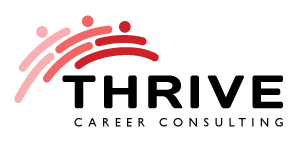
By now, if you have kids, you have survived one of life’s great rituals: back to school. Camps have been replaced by curriculum; picnics by pedagogy; swimming by STEM. You have signed all the permission forms, replaced the jeans that were “OMG, like, sooo last year”, prepared a week’s worth of healthy lunches (or at least lunch money). High-five mom and dad, you did it.
And now (…exhale…), back to work.
September means the kids return their attention to learning and growth. But it is also a most wonderful time of the year for us grown-ups to take stock and focus on our own #learning, #careergrowth, and #fulfillment. On that theme, I had the opportunity recently to be interviewed by CBC Radio One on several of their morning shows about a “Work Reboot”, and answer what it is about this time of year that makes it a good time to focus on your career.
What should people be doing and thinking about each year to keep their careers fresh?
Stay current. Now more than ever, you need to maintain your skills and experience. You need to be prepared to meet the needs of your profession or organization not just now, but in the future. Do an inventory of your skills, strengths, and accomplishments for the past 6-12 months, and identify what you need to develop in the next 6-12 months.
“Skate to where the puck is going”
Stay connected. It’s hard to underestimate the importance of building and maintaining strong relationships with people inside and outside your organization. Your #network is perhaps the most important career asset you have. Make sure you are regularly investing time to make new connections, strengthen weak ties, and offer to help others.
How do you know it’s time to make some changes in your work life, or even make a full career change?
The signs and motivations are different for everyone, but here are some of the reasons my clients approach me, whether they are feeling the need for new challenges, a new job, or a new career.
Dissatisfaction/frustration: “I hate my job.” That summer vacation didn’t do anything to ease the “Sunday night dread” and you’re back to grinding your molars in meetings. It’s probably showing up in your attitude, and worse, your performance.
Lost the plot: “What am I doing here?” You’re coasting. You’ve become disconnected from your sense of purpose (to work or life) and what makes you feel the most engaged and fulfilled.
Desire for better: “I want more.” You like what you do, but you’ve reached a plateau, and you’re ready for new experiences and challenges.
Second act: “What’s next?” You’re winding down your current career (or perhaps your employer is signaling they are going to do it for you), and you are ready to consider a 2nd or 3rd career. You want or need to pivot.
Change happening to you: “What now?” Life or family changes can bring a need to balance your focus on more than just work (childcare, elder care, personal health and wellness). Or perhaps the work you have been doing is changing dramatically, or you are being restructured out.
How do you approach talking to your boss about something you want?
There are two things to keep in mind before talking to the boss. First, bosses don’t have all the answers – they are busy getting results for the organization through you and the rest of the team, all of whom have unique needs and wants, while trying to manage their own careers. Second, it’s important to have the mindset that the path to successful career growth and development where you work now begins with aligning your career aspirations with what the organization needs.
Next, you need to prepare for the conversation before you have it:
Know yourself. Be able to clearly articulate what you want. Have a good, honest understanding of your strengths, skills and motivations. What do you enjoy most, and least, about what you do? When you are the most engaged on the job and getting the best results, what skills are you using? Where do you want to grow next?
Know your organization. Find out that the goals and strategies are for your company, department or team in the next year, or the next 3 years. What needs do they have? What problems can you help them solve?
Own your development. Be open to crafting a variety of ways to build the skills and knowledge you need through experiences (special projects and assignments, secondments, volunteering), exposure (committees, networking, collaborations) and education (courses, webinars, conferences, books). And be open to a variety of options for developing your career: growing in place with new responsibilities, making lateral moves, or even taking a step back.
What kinds of people have the most success changing careers?
In my experience, people who are most successful navigating career growth and change focus on these things:
Purpose. Know your “why”. There are 360 different degrees of direction you can run away from where you are now. You will be happiest and most fulfilled if you figure out which one you want to run toward.
Research. It’s important to do your homework about the career change you want. Research the labour market and the demand for that career. Talk to people in that career to find out what it’s really like, the path they took, and what they’ve learned along the way. Figure out how best to pivot and rebrand yourself and your transferrable skills and experience.
Investment. People save for vacations. They save for retirement. Why not save to invest in a possible career transition? Take advantage of whatever professional development your employer offers, but don’t make the mistake of being limited by it. Be prepared to volunteer, network, take courses on your own, attend conferences, pay for memberships, and invest personal time and money to engineer a change for yourself.
Support. Don’t feel like you have to go it alone. If you are successful at staying connected, you can leverage your network to create your own personal “board of advisors”. You can find a mentor in the area in which you want to redirect your career. You can also hire a coach.
So, tonight when you get home, after you’ve cleaned up the dinner dishes, sorted the laundry, and made the lunches, take time to think about one thing you can do right now, in this season of learning and growth, to focus on you and your career.
